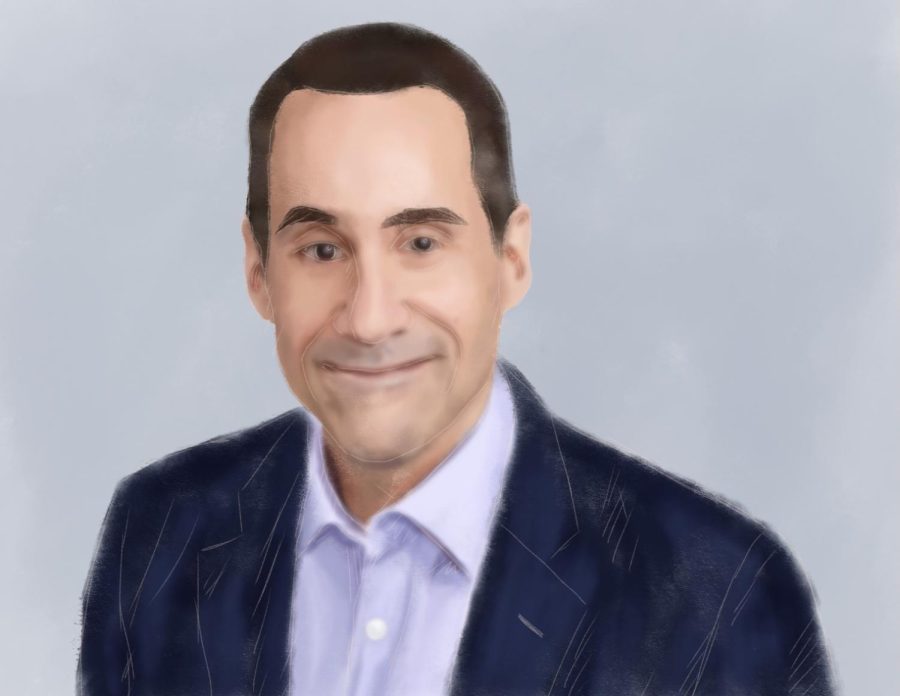Weissman Center forum discusses what makes brands successful
September 26, 2022
Baruch College’s Weissman Center for International Business hosted Raleigh Denim Workshop CEO David Conn on Sept. 19 as part of a virtual panel.
As part of Weissman Center’s “Mitsui USA Lunch-Time Forum” series, the virtual panel titled “Building and Leading Top Brands in a Post-Pandemic World” welcomed Conn to talk to students about his experiences with brands, marketing and entrepreneurship.
Prior to working at Raleigh Denim, Conn worked in several companies, including Iconix Brand Group, VF Corp., and True Religion Apparel Inc. He also served as a mentor for Baruch’s “Executives on Campus” program.
In his line of work, Conn has raised the capital of companies by acquiring business trademarks to be marketed creatively and licensed to big retailers — such as Macy’s Inc. and Target Corp. — all without having to run businesses themselves.
To build a brand, Conn emphasized three things a company must do: differentiate itself from other brands, be clear on what it stands for and be consistent in standing behind those values.
“There’s so many brands out there that don’t have clarity, resemble one another and just sort of have a very generic point of view,” he said.
Conn brought up his time as CEO of private equity firm ThreeSixty Brands, with which he reopened FAO Schwarz. Amazed by the emotional power provoked by the toy brand, Conn acquired its trademark and gave way to a new flagship store in New York.
Conn talked about the importance of making brands “experiential” for customers. To successfully relaunch the brand against e-commerce competitors, he sought to provide an in-person experience that cannot be felt online. As a result, the store reopened with a “theatrical” vibe reminiscent of “Disneyland,” hiring performers to tell jokes, sing, dance and juggle.
He also expressed support for multi-channel brands. Aside from having physical retail locations to represent themselves, these brands have a digital presence, created through social media marketing.
Being on multiple marketing channels proved beneficial for some brands when COVID-19 forced stores to shut down and businesses continued online. Although it has physical locations and the pandemic is easing, Raleigh Denim continues to make most of its sales online.
“I think there’s definitely some uncertainty around the macro environment and things that are happening out there, but physical retail is doing well,” Conn said. “People look forward to returning to shopping. People missed out on it during the pandemic.”
On the importance of data and analytics in performance, Conn said that “there’s no substitute for talking to customers.”
To strengthen his point, he referenced his time as the executive vice president of True Religion, in which he’d spend two weekends per month working at a physical store. He would give free jeans as an incentive to customers who would give feedback over the phone.
Toward the end, Conn imparted business advice to students. For one, he told them that it is “so critical that you get along well with […] the people who work alongside you.”
He encouraged students to take advantage of video-friendly social media platforms and cloud based management software like Shopify Inc., to jump start their brand. He also talked about Raleigh Denim’s sustainability goals.
Lastly, he encouraged students to be open about their ideas, saying that “there’s nothing wrong with being ambitious.”
“Don’t be afraid to raise your hand and let people know your goals and your ambitions,” Conn said. “I think when they know that, they’re more likely to want to mentor you, include you in meetings and teach you the broader business. Don’t take for granted that people know where you want to go with your career.”
Weissman Center Executive Director Myung-Soo Lee, who facilitated the discussion, said that the next panel on Oct. 11 will be held in person. Attendees can expect lunch and snacks to be offered, in addition to an informative discussion.







